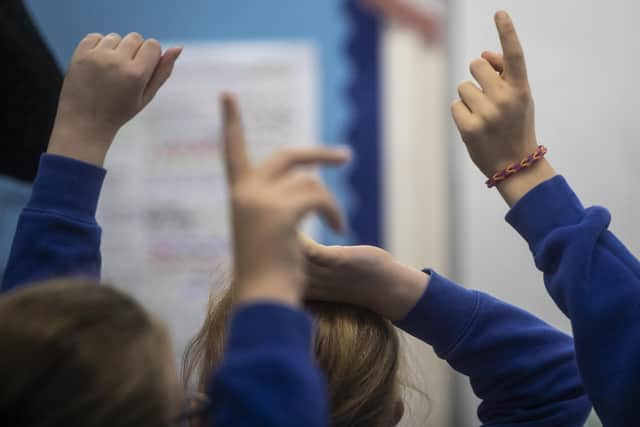How much longer are we going to stand back and allow infant mortality rates to rise - Jayne Dowle
Does Victoria Atkins, Secretary of State for Health and Social Care, mother of a young son, sleep at night, knowing this? What about her Labour opposite, Wes Streeting, who grew up in a council flat in the East End of London, before studying history at Selwyn College, Cambridge? Surely, Labour should be seizing the opportunity to tackle this condemnation of a generation.
This new report found the decline in children’s health had been compounded by the Covid-19 pandemic as well as the cost of living crisis, but started in the years preceding 2020, so it clearly is a legacy of successive Conservative governments.
Advertisement
Hide AdAdvertisement
Hide AdConducted by the Academy of Medical Sciences, an independent health and biomedical organisation, it finds our children are not only more at risk from infant mortality – there were four deaths per 1,000 births in the UK between 2019 and 2022, compared to 1.7 per 1,000 in Japan, for example – as they grow up, they are also more likely to fall victim to serious health conditions and preventable diseases.


More than a fifth of British children aged five are overweight or obese, nearly a quarter of five-year-olds in England are affected by tooth decay, fewer children are having vaccinations to guard against preventable – but damaging – diseases such as measles, and there is a rise in demand for children’s mental health services that is not being met, the researchers found.
“Unless the health of babies and young children is urgently prioritised, we condemn many to a life of poorer health and lost potential,” says co-chair of the report, Professor Helen Minnis, from Glasgow University. “The time to act is now.”
The UK is ranked at number 30 out of 49 developed countries for infant mortality, defined as the proportion of children who are dying before their first birthday.
Advertisement
Hide AdAdvertisement
Hide AdIt means Britain’s children are less likely to reach the age of one than those in 60 per cent of other Organisation for Economic Co-operation and Development (OECD) countries, including France, Germany, Greece and Slovenia, as progress on improving survival rates has stalled.
The UK’s global ranking has gradually fallen from 23rd in 2015 when the infant mortality rate was 3.9 deaths per 1,000 births.
In Greece, for example, the current infant mortality rate in 2024 is 2.277 deaths per 1,000 live births, a 3.07 per cent decline from 2023.
The really chilling thing is that while other countries are improving health outcomes for their youngest citizens, Britain’s rate stagnated before it fell during the pandemic back to figures not seen since 2012, disproportionately affecting the poorest parts of the country.
Advertisement
Hide AdAdvertisement
Hide AdHow much longer are we going to stand back and allow this to happen? Each infant loss is not just another number to add to the death toll, but a damning indictment of a government that seems not to notice, or care, that so many families are struggling in abject poverty.
In response to the findings, an official spokesman said the government had taken “significant action” to improve children’s health, by “… dramatically reducing sugar in children’s foods, investing over £600m to improve the quality of sport for children, and encouraging healthy diets for families from lower income households through schemes like Healthy Start.”
£2.3bn invested into mental health services (across the board) and apparently more children seeing NHS dentists were also flagged up as improvements.
However, it is hard to see how improving the quality of sport is helping in the slightest to keep babies alive. Neither does it address how a parent reliant on foodbanks to feed their children might be in a fortunate enough position to calculate the sugar in a tin of beans.
Advertisement
Hide AdAdvertisement
Hide AdAnyone who walks even just a few streets away from the Westminster bubble knows that the pervasive threat is poverty. It’s not just about money however, but a huge and growing chasm of understanding.
Only this week, the charity Barnardo’s said that more than one million children in the UK either sleep on the floor or share a bed with parents or siblings because their family cannot afford to replace broken frames and wash mouldy linen.
No doubt the government will respond by reminding us that the last so-called £299 cost of living payment is being handed out to the poorest eight million households this week. However, in so many cases, this sum will already have been accounted for.
Comment Guidelines
National World encourages reader discussion on our stories. User feedback, insights and back-and-forth exchanges add a rich layer of context to reporting. Please review our Community Guidelines before commenting.
